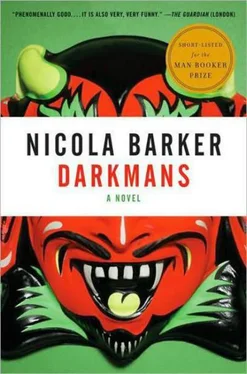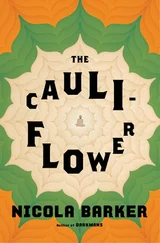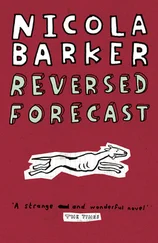She paused. ‘Not a million miles away — in many respects — from how we live life today.’
‘You think modern life is medieval ?’
Kane was patently going to take some convincing.
‘Absolutely.’
‘Give me one example,’ Kane challenged her.
‘Okay…’ she gladly took up his gauntlet, ‘if you ask any expert in the field what the single most notable social characteristic of medieval life was they’d probably say the bells. It might sound strange now, but bells pretty much defined the age. They tolled for every occasion — the start of curfew, the end of curfew, the arrival of a dignitary, the prospect of danger. Quiet was an anomaly. Life was all clamour. And now, after several hundred years of relative social calm and tranquillity, we’ve developed the mobile phone which also chimes — and must be allowed to chime — at every avaliable opportunity. But instead of bringing social unity, instead of connecting us more intimately to our social peers and neighbours, it actively divides us, it isolates us, it encourages an atmosphere of merciless self-involvement parading in the guise of spurious conviviality…’
‘Fine,’ Kane smiled, ‘so you don’t like the phone…’
She shifted her weight, leaned her hip against the desk, then calmly continued, ‘In medieval life the higher echelons of society celebrated levels of cupidity — of excess; their huge feasts , their crazy processions , their ornate costumes —that were, by any historical standard, almost obscene. Here, today, deep inside the belly of the decadent West, we cheerfully do the same. We define our power and our status — just as they did — through meaningless and gratuitous acts of consumption. The phrase all you kids like to use, I believe, is bling .’
Kane smirked. He opened his mouth to say something…
‘And how about their obsession with Courtly Love?’ she demanded, jumping in first. ‘The tournaments, the jousts, the chivalrous knights and all those bizarre and convoluted rituals of etiquette — those faux-historical games of form , which weren’t actually historical at all; the cult of King Arthur, for example? All neatly echoed in our present-day passion for, say, Star Wars , or The Matrix…The Lord of the Rings . Harry bloody Potter. All invented mythologies. We inhabit these worlds as if they are real. We respond to them intellectually although they aren’t remotely intelligent. We encourage our children to play computer games which seek to simulate life, to mirror it, because we’re too afraid to let them step outside their own front doors. We allow them to fight violent, artificial wars on screen while we carefully remove ourselves — and them — physically, from the consequences of actual conflict, with our long-range warheads and our missiles…’
‘But how,’ Kane quickly leapt in, ‘can we be more violent and less, all at the same time…?’
‘It’s the perfect medieval mind-set,’ she exclaimed, ‘don’t you see? To experience something so intensely but as a strange kind of denial . I mean it’s tragic,’ she persisted, ‘almost laughable, that our greatest invention — the computer — a device intended to set us free to live lives unconstrained by mindless detail — has actually ended up binding us more thoroughly to life’s minutiae by filling the world with reams of useless — often unreliable — information; with this endless, this empty, this almost unstoppable babble …’
‘Perhaps you underestimate normal people,’ Kane said, quite appalled by her diatribe, ‘both back then and now. Perhaps the largest percentage of us just slip under the radar, live life — quite happily — in that outer garden, that pagan garden, but history simply doesn’t see fit to acknowledge our quiet and uncomplicated role in it.’
As he spoke she idly turned the pages of her scrapbook. ‘Beede has this fascinating theory on language…’ she said.
‘Beede?’
‘Yes.’
‘What kind of theory?’
‘It’s complicated, but he thinks that the Renaissance took place — in Britain, at least — because of the evolution of English — that our language grew and developed towards the end of the Middle Ages and functioned as a necessary radicaliser, as a harbinger of the new. Because language won’t be restricted. Because language is uncontainable. Like a fast-running river. It bubbles up and splashes and spills. English wasn’t the obfuscating Latin of the Bible or the exclusive, courtliness of French. It had this unconstrained, grass-roots honesty and power. In effect, he thinks that our native language didn’t just describe change, it actively stimulated it.’
Kane was staring down at the painting on the page she’d just turned to.
‘Is that a Lochner?’
‘Yes.’
‘Wow…’
He drew closer to the image, both fascinated and revolted.
‘It’s The Martyrdom of Saint Bartholomew . Vile, isn’t it?’
Kane nodded.
‘What you need to remember,’ she counselled, ‘is that Lochner and his contemporaries lived lives of great extremity, of violent contrast. Huizinga says how the outlines of all things were much more clearly marked back then, and that’s represented here, visually, in the very modern way in which the artist has outlined the silhouettes of Bartholomew’s torturers…’
Kane inspected the silhouettes, frowning. Then he shuddered.
‘It’s hard to really understand the dark, for example, if you always have ready access to light, or the cold if you have constant access to heat, or real distance if you never actually walk anywhere…’
‘Walk?’ Kane scoffed. ‘Did you ever try and do anything on foot in this town?’
‘In Ashford ?’ she chuckled. ‘Are you kidding? It’s such an astonishing muddle , for one thing — such a puzzle . It’s like history in paradigm. At its centre beats this tiny, perfect, medieval heart, but that heart is surrounded — obfuscated — by all these conflicting layers; a chaos of buildings and roads from every conceivable time-frame. It’s pure, architectural mayhem. A completely non-homogeneous town, utterly half-cocked, deliriously ramshackle…And then, clumsily imposed on top — the icing on the cake — this whole crazy mish-mash of through-roads and round-roads and intersections and dead-ends — Business Parks, Superstores, train stations, train tracks — which slice blithely through all the other stuff, apparently aiding it on the one hand, yet completely disregarding it on the other…’ she paused, ruminatively. ‘You’re right: Ashford’s a fantastic contradiction; a city which professes to celebrate journeying while being basically almost unnavigable on foot.’
Kane continued to stare at The Martyrdom of Saint Bartholomew while she spoke. He found the painting oddly mesmerising. In it he saw six men degrading a naked saint who lay on his belly (tied by two strands of rope, at his waist, to a table). The saint was fully conscious, and he didn’t look especially saintly, or — his halo aside, obviously — particularly or indefinably different to his torturers. He could’ve been any of them.
And he wasn’t just receiving the torture, passively, he was propping himself up, on to his elbow, and glancing over his shoulder (irate, almost) as one of his attackers — knife between his teeth — matter-of-factly prised back a huge, clean sheet of his skin.
Below the table, an old man casually and cheerfully sharpened the knives. Further along, a man dressed in white idly pushed a blade into the saint’s thigh.
Читать дальше
Конец ознакомительного отрывка
Купить книгу












